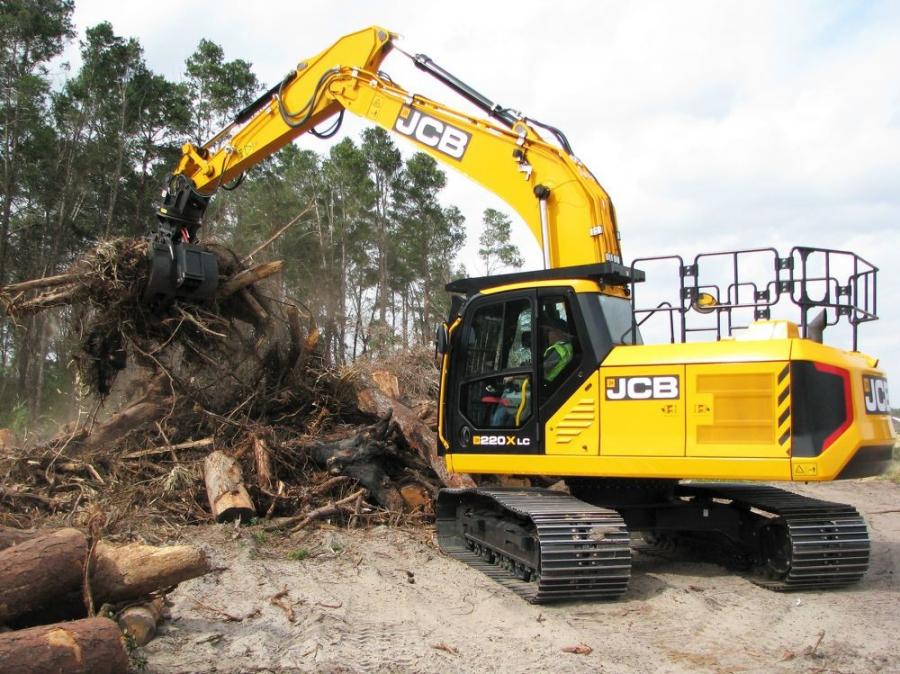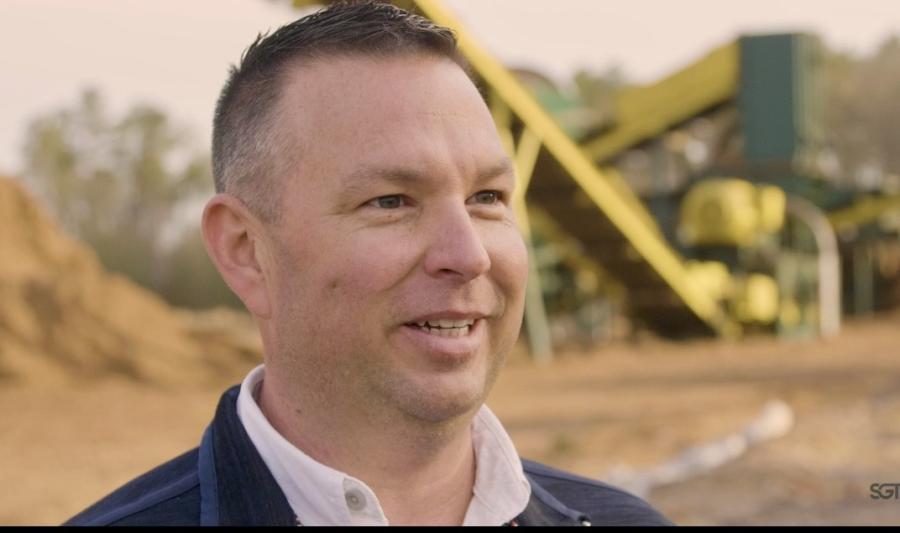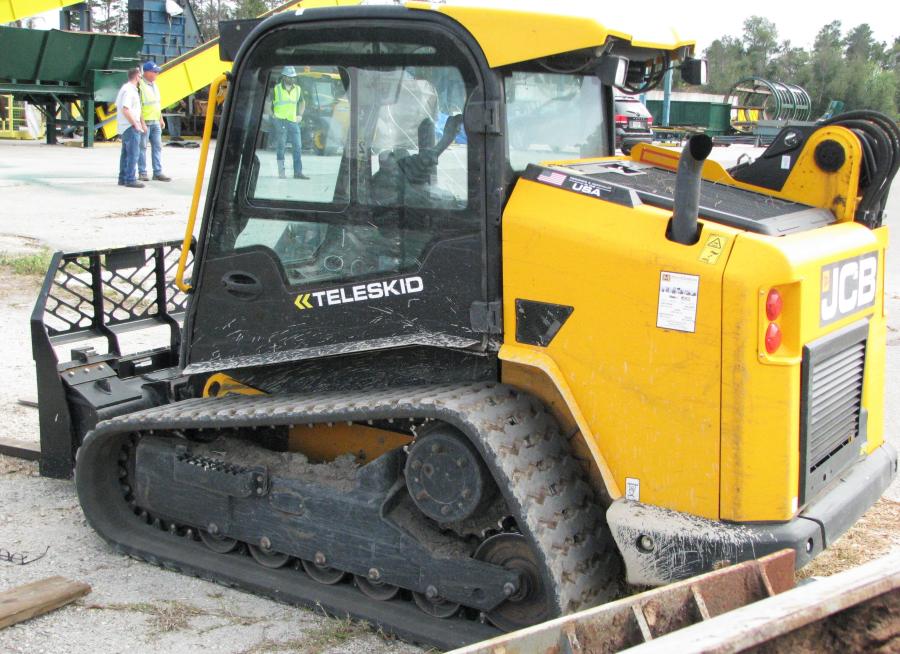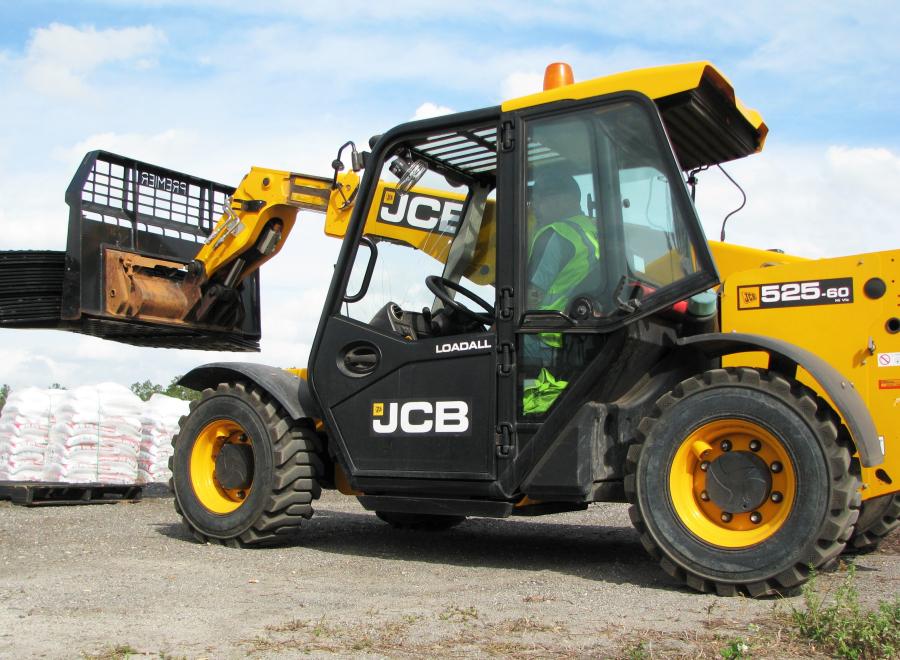
Thu April 01, 2021
Eric Olson - CEG CONTRIBUTING EDITOR
Tony Raynor is very effusive about his company's versatility and, as he likes to say, the "depth" of its subsidiaries.

Tony Raynor is CEO of Sustainability Green Team (SGTM), Astatula, Fla.
There is no denying that Raynor is spot-on with his assessment. As the CEO of The Sustainability Green Team (SGTM), a Delaware company, he has created an operation that, through its ancillary firms, provides a variety of environmentally friendly tree services, including debris hauling, removal and biomass recycling, in addition to manufacturing, packaging and sales of next-generation mulch products.
SGTM's core objective, though, is to provide a solution for the treatment and handling of tree debris that has historically been sent to local landfills and disposal sites, creating an environmental burden and pressure on disposal sites around the nation.
When you understand everything SGTM does, it is hard to imagine that there are many American companies in the same business that are as multi-faceted.
SGTM Experiencing Growth Spurt
"Right now, the Sustainability Green Team has two subsidiaries and over 20 brands," said Raynor, a 25-year veteran of the tree industry. "Those subsidiaries are Mulch Manufacturing Inc., a 35-year-old leader in the industry, and National Storm Recovery, LLC. If you were to break down each one, you will see a lot of depth in them, as well. Our vertical integration model goes from tree cutting to the collection to the disposal."
SGTM's acquisition of Ohio-based Mulch Manufacturing in February 2020 can only be viewed as a major coup for the parent firm. In doing so, Raynor's operation is positioned to expand well beyond Florida and provide it with a significantly larger footprint in the mulch industry.
Mulch Manufacturing's strategic partnership with SGTM included national and international distribution agreements and brought the latter company an increase in production and packaging capacity. Acquiring the company brought several unique products that were created through patented processes, he said.
"One of its divisions is now our trucking company, Rose Transportation, and another is Nature's Reflections, a high-quality mulch colorant product," Raynor said. "Ingredients are shipped from different countries to Jacksonville where we make it at our 30,000-square-foot manufacturing facility."
Mulch Manufacturing even builds the machines to add color to its product, technology known as the Cheetah Coloring System, rather than buying colored mulch in bulk from other companies. The equipment gets its name from the nimble African cat because its inventor designed it to efficiently utilizes less water and colorant to get the chemical mixture to quickly bind to the wood, Raynor said.
"Our being able to be innovative is what excites me about being part of this team," he said. "For instance, when we build a manufacturing facility from the ground up, our experienced team understands what it takes to do it and if there is a piece of equipment that we cannot buy, we just roll up our sleeves and make it, like trommel screens, disks, conveyors, coloring machines — you name it."
In Homerville, Ga., the Cypress Sawmill division of Mulch Manufacturing works with loggers to acquire the valuable lumber it cuts, in addition to making top-grade cypress mulch from the trees' bark.
"In the end, there is not one part of the tree that is wasted," Raynor said of the mill.
After-Storm Team Ready to Go
The other SGTM subsidiary, National Storm Recovery, headquartered in Astatula, is a provider of disaster clean-up services to commercial and municipal customers. Through its divisions, the company takes care of all post-storm tree services, debris hauling, biomass recycling and mulch manufacturing.

"In storm recovery, it's all about efficiency and it requires a lot of planning," he said. "Typically, the storm division sets up in a region near the closest possible dump site, or temporary debris staging (TDS) area. They work to get the roads cleared quickly and find sites less than 15 miles from the affected area. Depending on the damaged area and how large that region is, there may be several TDS sites nearby. Then, they grind up that material and we market it as mulch."
Within National Storm Recovery is Central Florida Arbor Care, based north of Orlando in Astatula, a tree-care division with certified arborists and arbor-cultural equipment. SGTM's tree collection division rounds up wood debris from the arbor care business while maintaining wood recycling collection sites in both Apopka and nearby Astatula. From those sites (a future collection location in Jacksonville also is planned), tree waste is processed into the highly desirable mulch products that SGTM markets to big-box retailers, garden centers and landscapers.
Specialized Facilities Add to SGTM's Success
Pausing to consider all of his companies and divisions, Raynor said, "This is sustainability at its finest. [SGTM] is based on sustainability and we believe that's the future in our industry. When I looked at putting this team together, that's why we named it the Sustainable Green Team. We understand our strength comes from within a team and that team is made up of vendors, partners, employees and subcontractors."
In total, SGTM maintains six production facilities. Besides the Georgia sawmill and the Jacksonville coloring plant, its 100,000-sq.-ft. Callahan, Fla., location is, according to Raynor, a "powerhouse packaging facility" with six bagging lines and 100 acres of storage for cypress, pine, colored and A-grade mulch, including its Softscape product. The facility is just two miles from the CSX rail line, giving SGTM the convenience of distributing its products nationwide via freight trains.
The Apopka and Astatula facilities each process tree waste into full lines of bagged and mulch products. Raynor added that the Apopka plant has a strong partnership with Waste Management and maintains a SGTM grapple division that does collection runs.
Briggs JCB Has Right Attributes
A complex business that handles tons of damaged trees and moves a lot of wood byproducts cannot function properly without reliable and durable equipment.

Not surprisingly, Raynor has purchased many different machines from a variety of manufacturers during his time in the industry. Approximately 10 years ago, though, his attention was drawn to JCB equipment, eventually leading him to obtain a couple models through the Florida locations of Briggs JCB.
"At that time, I was already mid-stream into a lot of commitments with other equipment, but sometimes companies that you deal with don't have the same depth to them as we felt JCB did," he said. "We had recently acquired a tree company and we were looking to add some equipment. JCB went out of its way to make the acquisition process simple, and a relationship was built with some longevity in mind.
"I was intrigued by the technology of JCB's teleskids and the telehandler's boom being able to be extendable. I think, though, it was the persistence of Briggs JCB's team that gave us the boost."
SGTM's first JCB machine purchase was the manufacturer's 505-20TC telehandler, which Raynor also preferred because of its ability to utilize multiple attachments.
"With it, I'm able to unload pallets, throw a grapple attachment on and load up the dump trailer during a storm," he said. "The single-boom arm has been incredible and it's stronger than you would really think. Plus, the telehandler can work on concrete and go off road, too. In fact, we still have that machine today."
The versatility of that one telehandler led SGTM to acquire other JCB equipment, he said.
"From there, we moved into the teleskids and found we enjoyed those machines due to their strength and breakout force," Raynor said. "I was intrigued at how an operator can get in and out of the machine through the side door, along with the better visibility and having one cylinder rather than two. There were so many things I saw that JCB's teleskids offered that I just had to try one myself to see if it really worked as well as I had heard, and it did."
Briggs JCB also sold Raynor a JCB 437 AGRI wheel loader, a new 220X excavator and provided dealer support for the ASV equipment SGTM uses in its tree handling operations.

SGMT's large JCB 220X can easily pick up logs and tree waste thanks to a rotating grapple head attachment made by Pemberton. In addition, an eight-yard rollover bucket and rake grapple also manufactured by Pemberton, was purchased by Raynor for the JCB AGRI wheel loader.
"We acquired the loader and excavator at a time when we were in need and we used them despite not seeing a lot of JCBs in use in the dusty environments within which we work," he said. "Briggs JCB reassured us that they would be fine. In our line of work, we are ripping up logs and piles of debris and feeding grinders. This is very robust work and things do go wrong, but from what we have seen this equipment holds up very well."
Raynor also was impressed with Briggs JCB's preparation prior to its meeting with SGMT. Because the company's various divisions work in places that are so dust-heavy, the dealer understood that if SGMT acquired any JCB machines they would need to be equipped to work efficiently in those environments.
"The folks at Briggs JCB knew exactly what they were doing when they came in to see us," Raynor said. "We didn't have to explain to them that we needed a reversing fan — they already knew. Their machines came properly equipped."
Expansion Efforts Already Under Way
SGTM's has drawn up plans to continue its growth, Raynor said, including a major expansion in Astatula. There, the company's flagship tree debris collection site will be located on a 100-acre parcel and will include a facility housing its mulch manufacturing, soil composting and production bagging operations. The large acreage can accommodate millions of cubic yards of organic debris and will allow SGTM's debris hauling division to realize significant savings on its transportation costs. In addition, the Astatula site will also include a 5,000-sq.-ft. building designed for office and warehouse space.
"The nice thing about these facilities is that we do have ample room to expand into," Raynor said. "SGTM believes our future is here and now." CEG.
This story also appears on Construction Equipment Guide.
 Forestry Equipment
Forestry Equipment Articles
Articles Sign up for Updates
Sign up for Updates Sell Your Machines
Sell Your Machines

 Forestry Equipment
Forestry Equipment Forestry Dealers
Forestry Dealers Forestry Articles
Forestry Articles Sign up for Updates
Sign up for Updates Sell Your Machines
Sell Your Machines